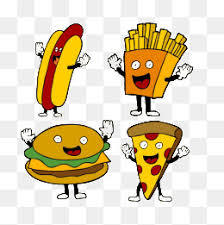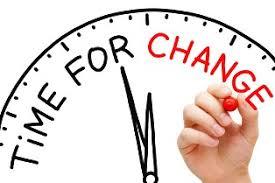Kenneth Schwarz's Blog
December 29, 2017
Make Old Eating Habits Die and the Weight Loss Journey More Navigable
Your old eating habits rearing their provocative heads are an unwanted impediment when it comes to trying to lose weight. 
Most women think their new eating habits that come from dieting will be what guarantees them successful weight loss. Guess what? It ain’t so. Eighty percent of people who lose weight gain back the weight they lost.
The long journey to successful weight loss is strewn with the bodies of serial dieters. Why? Because old eating habits die hard, which means they don’t die at all, not unless you concentrate some of your effort on making sure the old eating habits are really kaput.
So how can you go about laying the all-too-familiar, old eating habits to rest? For today, let’s list a couple of ways.
When you’re going to eat fattening foods, binge eat, or overeat, stop yourself.
But before you stop yourself make a prediction about what's the worst thing that will happen because you stopped yourself from one of these forms of weight gaining eating.
Afterwards have a talk with yourself about what happened with your prediction. Did what you predict occur? If something did occur, was it as bad as expected? Was what occurred manageable? Were you surprised at what happened?
Practice doing this daily for a few weeks.
When you’re going to eat fattening foods, binge eat or overeat, stop yourself.
Before you stop yourself make a prediction about what's the worst thing that will happen because you stopped yourself from one of these forms of weight gaining eating.
Now comes the new part. Vary the times when you stop yourself—at different meal times, in between meals, before bed. Vary the intervals between practice sessions—hours, days, weeks. Vary the places where you practice stopping yourself—at home, at a friend’s house, in a restaurant, at work. Vary the social situation—when alone, with a family member, with a friend, within a group.
Remember to have a talk with yourself about what happened with your prediction. Did what you predict occur? If something did occur, was it as bad as expected? Was what occurred manageable? Were you surprised at what happened?

December 28, 2017
Can’t Lose Weight—Old Eating Habits Are in the Way
One of the biggest weight loss spoilers is that old eating habits die hard. Even after months of successful dieting, up can pop one of the old eating habits, overeating, binge eating, or eating fattening foods. What happened? Things were going so well; it seemed like the old eating habits were no longer there. 
In fact, the old eating habits were nowhere in sight. There was no longer any sign that eating off the diet was an issue. As time wore on and diet food became part of the daily routine, there was less and less need to worry about the recurrence of the old eating habits.
It turns out that like any old habit, eating habits “die hard,” which is to say the old eating habits don’t die at all. They are there still, lurking, ready to pop up again and again. The new eating habits learned through dieting did not do what they were designed to do. They did not replace the old eating habits, not really. After months and months of successful dieting, it only appeared to be the case that the new replaced the old.
The new did not actually replace the old, and the new also did not get rid of the old. So what’s the conclusion? Well, it looks like the old eating habits need to be worked on more directly in order to be rid of them. More on this in the post to follow.

December 27, 2017
A Real Weight Loss Challenge—Identifying the Anxieties Behind Weight Gaining Eating
If anxiety is behind the necessity to binge eat, overeat, and eat fattening foods, what is the anxiety all about?
Anxiety is always about something.
You hear women say they feel anxious, but often they don’t get into the nitty-gritty of what their anxiety is all about.
What to Look For
What is your anxiety about that sends you right to food for comfort? What to look for is what's making you uncomfortable (aka anxious)? Do you know? Can you find out? The best way to find out is to let yourself think about what your anxiety is about when you stop yourself from doing the very thing that typically makes you comfortable (aka not anxious)—binge eating, overeating, eating fattening foods?
 Just let the ideas and feelings come as they may when you are in the midst of stopping yourself from doing the usual weight gaining eating. Free associate. And if it will help, imagine yourself lying on a psychoanalytic couch with the psychoanalyst (bearded man, off course) sitting out of sight behind you, listening to you, and every now and then he writes something.
Just let the ideas and feelings come as they may when you are in the midst of stopping yourself from doing the usual weight gaining eating. Free associate. And if it will help, imagine yourself lying on a psychoanalytic couch with the psychoanalyst (bearded man, off course) sitting out of sight behind you, listening to you, and every now and then he writes something.
What your anxiety is all about is an important determinant of what action steps you will take to dispel this anxiety and make loss of weight a lot easier for you.

December 26, 2017
Overeating, Binge Eating, Eating Fattening Foods—Anxiety is the Cause
Is anxiety behind the necessity to overeat, binge eat, and eat particularly fattening foods?
 It certainly doesn’t feel like anxiety. You overeat, binge eat, and eat fattening foods and gain weight. Then you try to reverse the process by trying to lose weight.
It certainly doesn’t feel like anxiety. You overeat, binge eat, and eat fattening foods and gain weight. Then you try to reverse the process by trying to lose weight.
Where’s the anxiety, you ask?
Well, try not to overeat, binge eat, and eat fattening foods. Instead of overeating or going on a binge or going to the cupboard or fridge for foods that will increase your weight, stop yourself and wait out the urge or the thought or the wish or the impulse or whatever you want to call it that sends you right to food.
Stop yourself right in your tracks. Do not, that’s DON’T, go for the food. In its place, do nothing; just let yourself be. Then see what happens. Check out your thoughts and feelings and perhaps even check on your physical reactions. This is how you can see if anxiety is behind the necessity to indulge in weight gaining eating.
The principle behind this exercise is that stopping yourself from doing something that typically gives you comfort indicates what is motivating you to seek comfort in the first place. Anxiety. And now you can see if this is so.

December 22, 2017
Attention Overweight Women—It’s Not Just About Food. Right?
What is primarily involved in well-established weight gaining eating are thoughts, feelings, actions, and goals that have been paired many times with specific situations. For example, bedtime being paired with snacking where each night now for the past year or so bedtime has meant getting up from a book or from TV, going into the kitchen, and preparing a substantial snack. The ostensible goal is not to go to bed feeling empty. 
Do's and Don'ts
Attached to this before bedtime snacking habit are various kinds of do’s and don’ts, most of which are so automatic, so habitual that they are not attended to by the person acting on them. But these do’s and don’ts are an essential part of this nightly snacking ritual.
For instance, once the person is in route to the kitchen, there’s no going back to the book or TV. This is a hard-and-fast rule. The snacking is performed in the clothes being worn. Getting dressed in bedclothes is not allowed until after the snacking is done. This is also a rule. The mood, which is easily switched on, is ‘not a care in the world.’ During the first part of the snack the person stands while eating. Then she sits at the kitchen table, same chair each night and consumes the rest of the snack at the kitchen table. When finished, she carefully washes the dishes and utensils used for the snack and puts them in their proper places in the dish drain.
The Aftermath
While snacking, the person feels fulfilled. She carries this fulfillment with her while she turns off lights, makes sure the heat has gone down, and does what she needs to in the bathroom. Once in bed, though, her previous feeling of fulfillment turns to just plain feeling full. This happens every night. She doesn’t like feeling full likes this, but thinks to herself I’ll lay down just like I did last night and go to sleep and the full feeling will go away.
Food for Thought
Don’t you get the idea from this vignette that weight gaining eating has to do with much more than just eating and food?

December 21, 2017
Using Psychology to Lose Weight
“In this paper, I take the position that because of the continuing high rate of weight loss failure with the current standard formula, Diet + Exercise = Weight Loss, a new formula for weight loss is needed. I argue that losing weight, especially for women, is never just about the food. It is always about a woman’s psychology as well. Adherence to a weight loss regimen and personal change are psychological matters that must be addressed by using psychology to lose weight.
Dieting and weight loss as they are currently practiced are not only insufficient, but they require too much self-control and willpower, which has made the weight loss process terribly arduous and ripe for failure. So in addition to the primary goal of losing unwanted weight, there needs to be the equally important goal of using the least possible amount of self-control and willpower to effect change.
With the goal of making the weight loss process much less dependent on willpower and self-control, I point out how to implement this goal. I take traditional weight loss issues and, using the principles and practices of psychology, I illustrate how to successfully resolve these issues more automatically, and without the need for such self-defeating effort.”
excerpt from “Using Psychology to Lose Weight: Because Dieting and Exercise Alone Don’t Work. White Paper by Kenneth Schwarz PhD.

December 20, 2017
Need to Lose weight. Time to Change.
A word of caution. Trying to lose weight is an undertaking based on personal change.
 Whenever there is change, you can expect that not all elements of changing from weight gaining eating to weight losing eating will occur at the same rate. In addition, changes will probably not be incremental and proceed smoothly. You can expect there to be spurts, plateaus, and even regressions.
Whenever there is change, you can expect that not all elements of changing from weight gaining eating to weight losing eating will occur at the same rate. In addition, changes will probably not be incremental and proceed smoothly. You can expect there to be spurts, plateaus, and even regressions.
When you stand back and take stock of the process of change, it can look like change is more uniform and there is one-to-one correspondence. For example, you eat less you weigh less. However, this perception is the result of standing back and looking from afar. Whereas the way it is while you’re actually doing it, is much messier. Here’s where the word of caution is needed. While you’re actually working on this personal change there are undoubtedly spurts, plateaus, regressions, behavior and thought pattern changes at different rates and different times, and sometimes being up to making the necessary change and at other times not.
If you keep in mind that change is quite an uneven process, perhaps this will prevent you from feeling demoralized when change doesn’t happen the way you expect it to.

December 18, 2017
Food Cravings
Food cravings—what are they; how do they affect you; and what can you do about them?
 Cravings may be best defined as a desire, ranging from weak to intense, for a specific food. They can present as one or more or all of the following, physical sensations, intrusive thoughts, emotional reactions, heightened attention, and mental imagery, with the end result being a compulsion or desire to eat the specific craved food.
Cravings may be best defined as a desire, ranging from weak to intense, for a specific food. They can present as one or more or all of the following, physical sensations, intrusive thoughts, emotional reactions, heightened attention, and mental imagery, with the end result being a compulsion or desire to eat the specific craved food.
There are a wide variety of techniques that can reduce the frequency and intensity of cravings and reduce their impact as well. There is self-regulation of attention so your attention is kept in the present moment. Being accepting of your thoughts, feelings, and bodily sensations without acting on them is another technique for coping with cravings. Learning to view your thoughts and feelings as passing and temporary; if you wait them out, they will go away. There is also believing that your thoughts are your thoughts and they are not you. This is a way to separate yourself from your thoughts.
All of the techniques listed in the previous paragraph expose you to your cravings, no matter what form these cravings take. If, like it is recommended, you do not act on your cravings, then it is likely that the impetus to satisfy your craving will eventually be extinguished.

How to Stop Food Cravings
Yesterday's post described food cravings, their impact on you, and techniques for reducing and even eliminating them.
it's always good to have many different skills for coping with a problem. So in today's post let's go over some more techniques for eliminating food cravings or, at the very least, reducing their impact on you.

December 16, 2017
Need to Lose Weight? What If…
What if…you stopped your weight gaining eating, didn’t overeat, binge eat, or eat fattening foods? What would make this possible? 
What if…you tried this out a little at a time? First off, you could set up a series of trials in which you would stop yourself for short periods of time (example: starting at 1 minute each trial and building up to as long as 5 minutes each trial). Would this make it possible for you to stop your weight gaining eating?
What if…you try to stop yourself for a longer period of time, say a whole meal with no snacking in between; that's no eating until the next meal? What would make this possible? Would you increase the probability that you could do this if you write down 5 of the worse things you expect to happen as a result of not indulging in weight gaining eating, and they don’t happen?
What if…when you try to stop yourself for a longer period of time, in addition to writing 5 of the worse things you might expect, you also describe aloud how you're feeling emotionally? Would this increase the likelihood that you could stop your weight gaining eating?
What if…you try these techniques and see.




